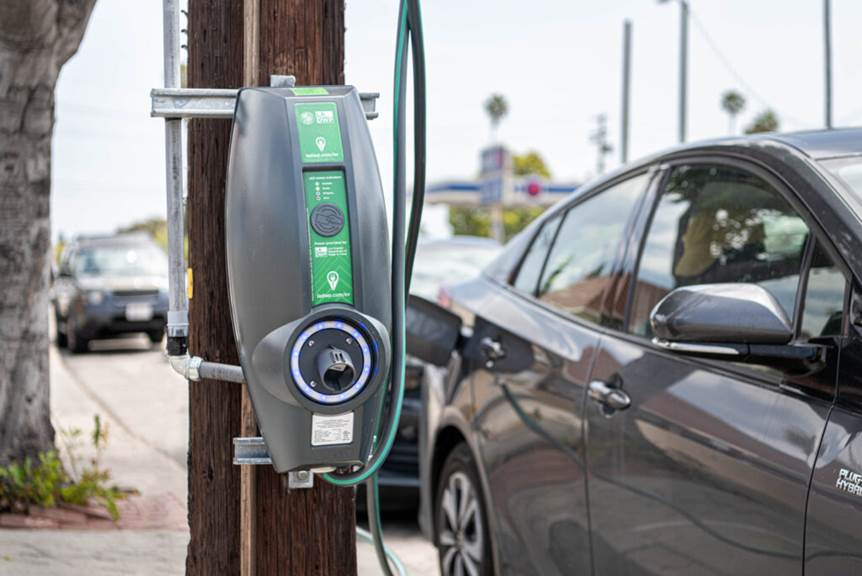
The Los Angeles Department of Water and Power (LADWP) is the nation’s largest municipal utility, with over 8,000 megawatt electric capacity and serving the 4 million residents of the City of Los Angeles, its businesses and visitors. With its bold sustainability goals and leadership in transportation electrification, the utility plays an integral role as one of the founding partners of the Transportation Electrification Partnership (TEP). “TEP creates a forum for all stakeholders, not just utilities, to have input,” says George Payba, Environmental Affairs Officer at LADWP. “It fosters the creation of new ideas that otherwise wouldn’t have occurred in a closed system.”
 With this collaborative spirit, LADWP has been able to go above and beyond some of its initial targets. The Charge Up LA Program, for example, provides rebates for LADWP residential and commercial customers who install Level 2 chargers (240 Volt) in their home or business in LADWP’s service area. Since its creation, this program has been highly successful to the point where LADWP has met its prior goal of 10,000 EV charging stations by 2022 two years ahead of schedule. “L.A. is on the road to meeting the city’s targets of 25,000 commercial charging stations by 2025 and 28,000 by 2028,” Payba said.
With this collaborative spirit, LADWP has been able to go above and beyond some of its initial targets. The Charge Up LA Program, for example, provides rebates for LADWP residential and commercial customers who install Level 2 chargers (240 Volt) in their home or business in LADWP’s service area. Since its creation, this program has been highly successful to the point where LADWP has met its prior goal of 10,000 EV charging stations by 2022 two years ahead of schedule. “L.A. is on the road to meeting the city’s targets of 25,000 commercial charging stations by 2025 and 28,000 by 2028,” Payba said.
To encourage more medium and heavy duty vehicles to go electric, the LADWP Board of Water and Power Commissioners approved a new commercial EV charging rate in November 2021 to speed expansion of publicly available, fast vehicle charging stations.
But it’s not enough to build out more EV charging stations; it’s just as important to focus on where those stations are being developed. “One of the key elements we want to focus on is putting more electric vehicle charging infrastructure in disadvantaged communities (DACs),” says Payba. In addition to rebates for EV chargers, LADWP offers a used EV rebate for up to $1,500. “Our goal is to place about 40% of EVSEs in DACs since those are the areas impacted most by the effects of climate change.”
Additionally, LA City Council recently approved an equitable hiring plan, which instructs LADWP to increase hiring from environmentally and economically disadvantaged neighborhoods and focus on “ensuring project labor agreements, prevailing wage and targeted hiring requirements” for clean energy jobs. The City anticipates creating 9,500 new jobs as part of the transition to 100% clean energy and to create a more inclusive green economy.
In the same City Council meeting, the City of LA and LADWP took the  historic step of requiring that100% of the City’s electricity come from clean, zero-carbon energy by 2035. Through a motion introduced by Councilmembers Paul Krekorian and Mitch O’Farrell, LADWP will lead the nation in this ambitious and game-changing commitment to sustainable energy. With these bold targets and key milestones, LADWP has set a precedent for the rest of the nation to continue on the path towards transportation electrification.
historic step of requiring that100% of the City’s electricity come from clean, zero-carbon energy by 2035. Through a motion introduced by Councilmembers Paul Krekorian and Mitch O’Farrell, LADWP will lead the nation in this ambitious and game-changing commitment to sustainable energy. With these bold targets and key milestones, LADWP has set a precedent for the rest of the nation to continue on the path towards transportation electrification.
As we push towards the future, it will be more important thanever for stakeholders and industries to coalesce and ensure that the region is prepared for a fully electrified transportation system. “Regional collaborations such as TEP have the power to create lasting, meaningful change as we work together to electrify our future. As we promote the discussion of innovative ideas, we look forward to future collaboration to achieve a more sustainable region,” said Payba. These efforts will undoubtedly prove worth it as we near TEP’s Roadmap 2.0 targets in 2028. He adds, “We hope that by the time the world arrives for the 2028 Olympic and Paralympic Games, people will see what an electrified region can be. From the airport to the stadium, people will experience a cohesive, seamless,
electrified transportation system and be inspired to achieve the same in their own regions.”
– Shevonne Sua, LACI Transportation Program Assistant
The Transportation Electrification Partnership (TEP) is an unprecedented regional public-private collaboration to accelerate deep reductions in climate and air pollution by the time of the 2028 Olympic and Paralympic Games. All of our partners have committed to work individually and collectively to pursue policies, pilot projects, and other actions that are equity-driven, create quality jobs, grow the economy, and help the region reach the bold targets in the TEP’s Zero Emissions 2028 Roadmap 2.0.


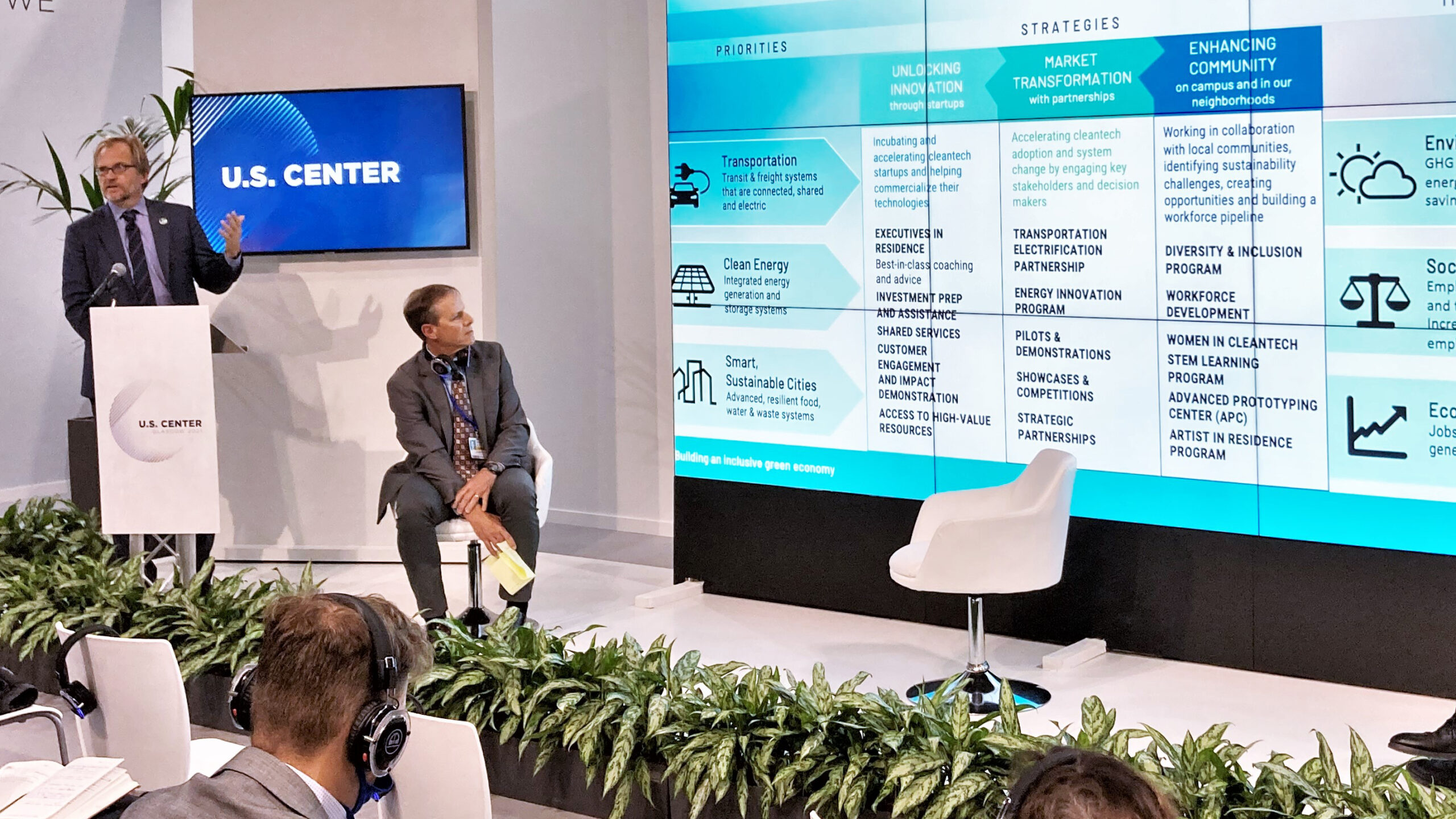





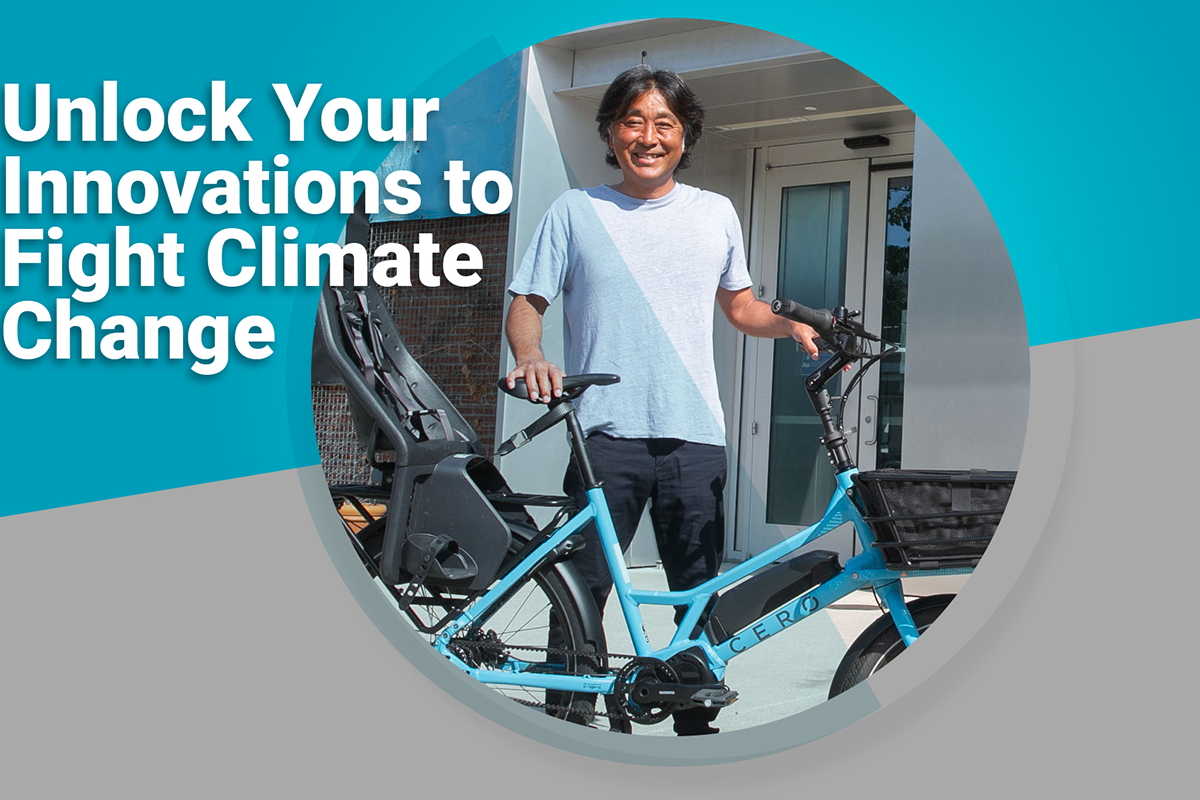
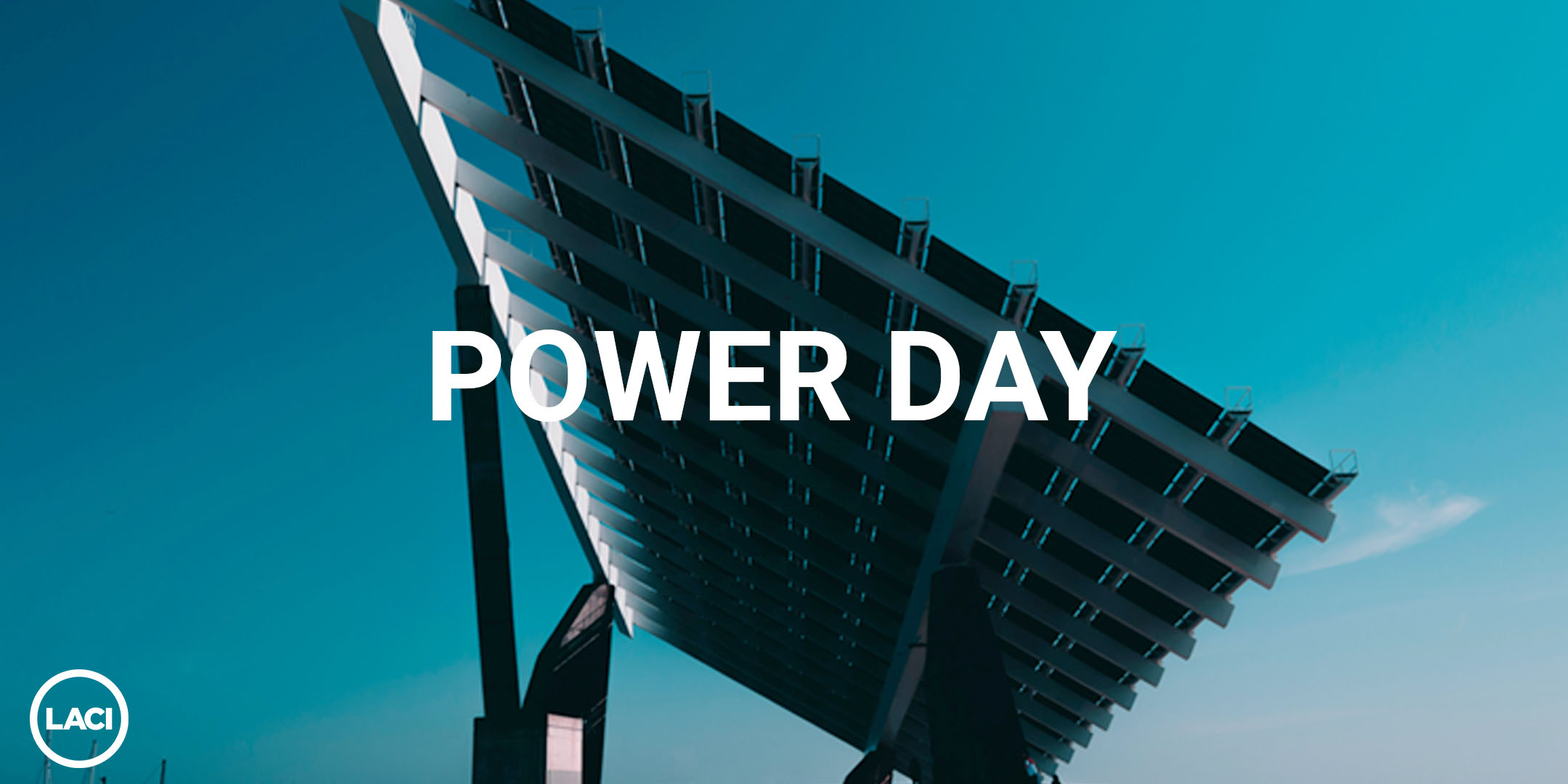


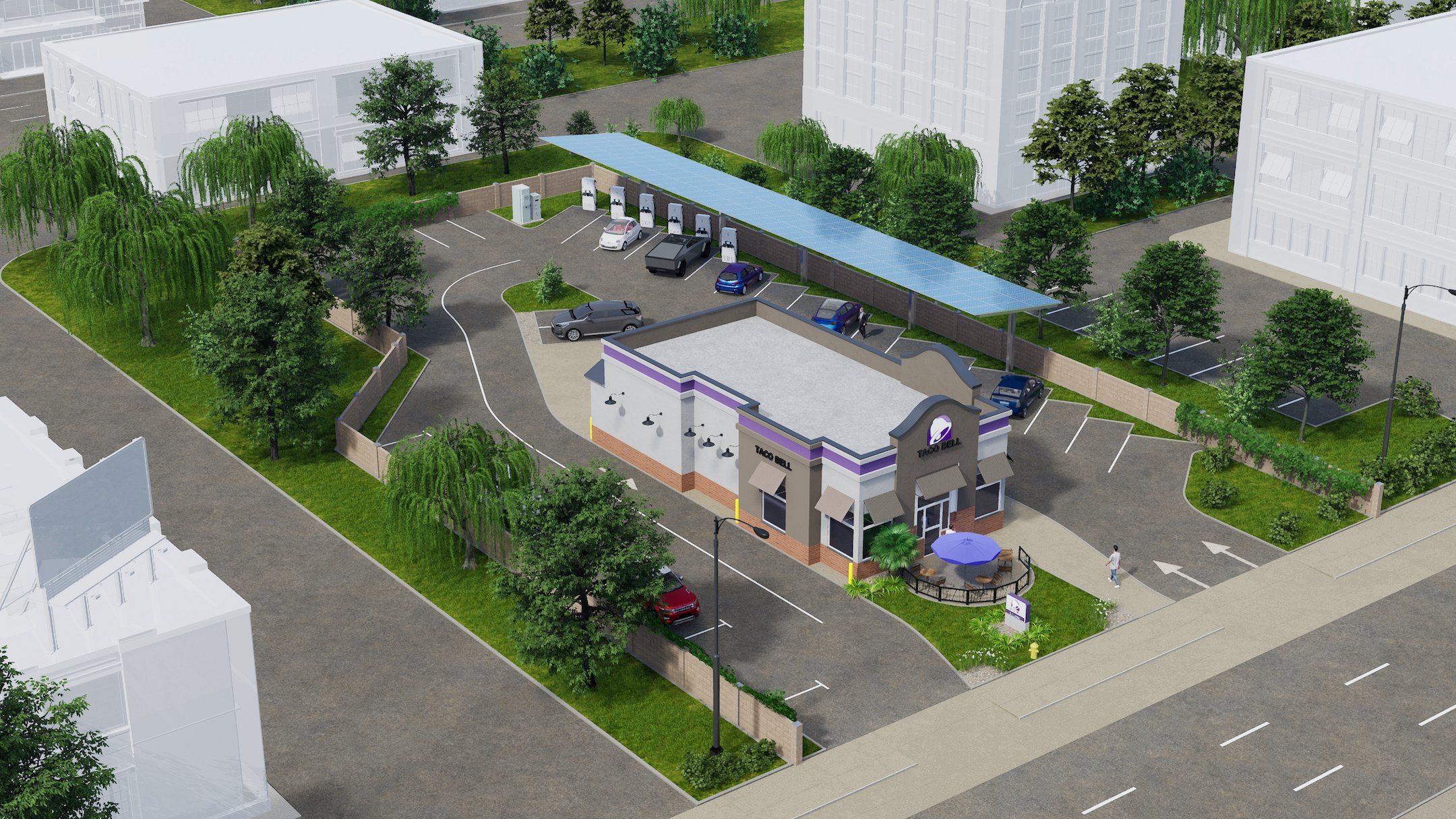
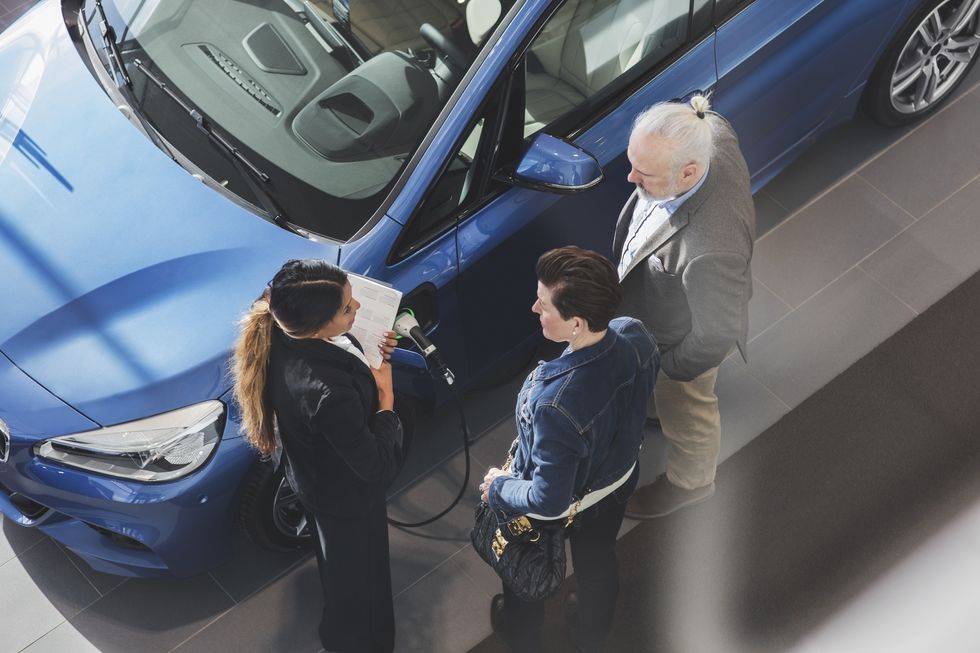
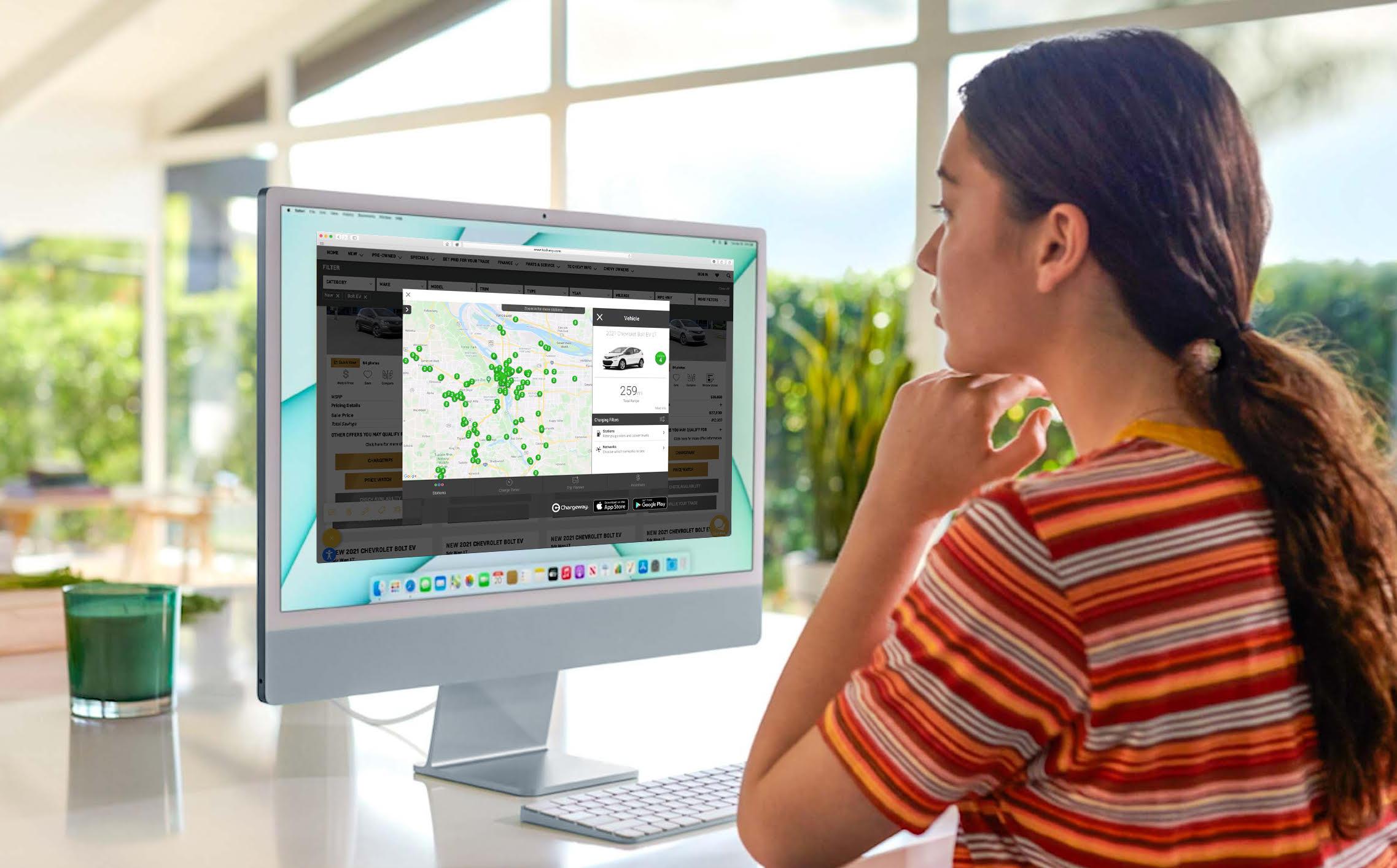
 The first of Chargeway’s dealer-focused tools was the Chargeway Showroom Beacon – a six-foot tall, interactive touchscreen kiosk that launched as part of a pilot program in Portland, Oregon. Together with the Oregon Auto Dealers Association (OADA), Portland General Electric (PGE) and Pacific Power, Chargeway placed seven Chargeway Showroom Beacons in key auto dealerships throughout Oregon in order to prove out the concept. The results were impressive: fourteen months later, EV sales in dealerships with a Chargeway beacon had increased by 200 to 1000% compared to comparable Portland area dealers with similar inventories of EVs but no Beacon.
The first of Chargeway’s dealer-focused tools was the Chargeway Showroom Beacon – a six-foot tall, interactive touchscreen kiosk that launched as part of a pilot program in Portland, Oregon. Together with the Oregon Auto Dealers Association (OADA), Portland General Electric (PGE) and Pacific Power, Chargeway placed seven Chargeway Showroom Beacons in key auto dealerships throughout Oregon in order to prove out the concept. The results were impressive: fourteen months later, EV sales in dealerships with a Chargeway beacon had increased by 200 to 1000% compared to comparable Portland area dealers with similar inventories of EVs but no Beacon.
